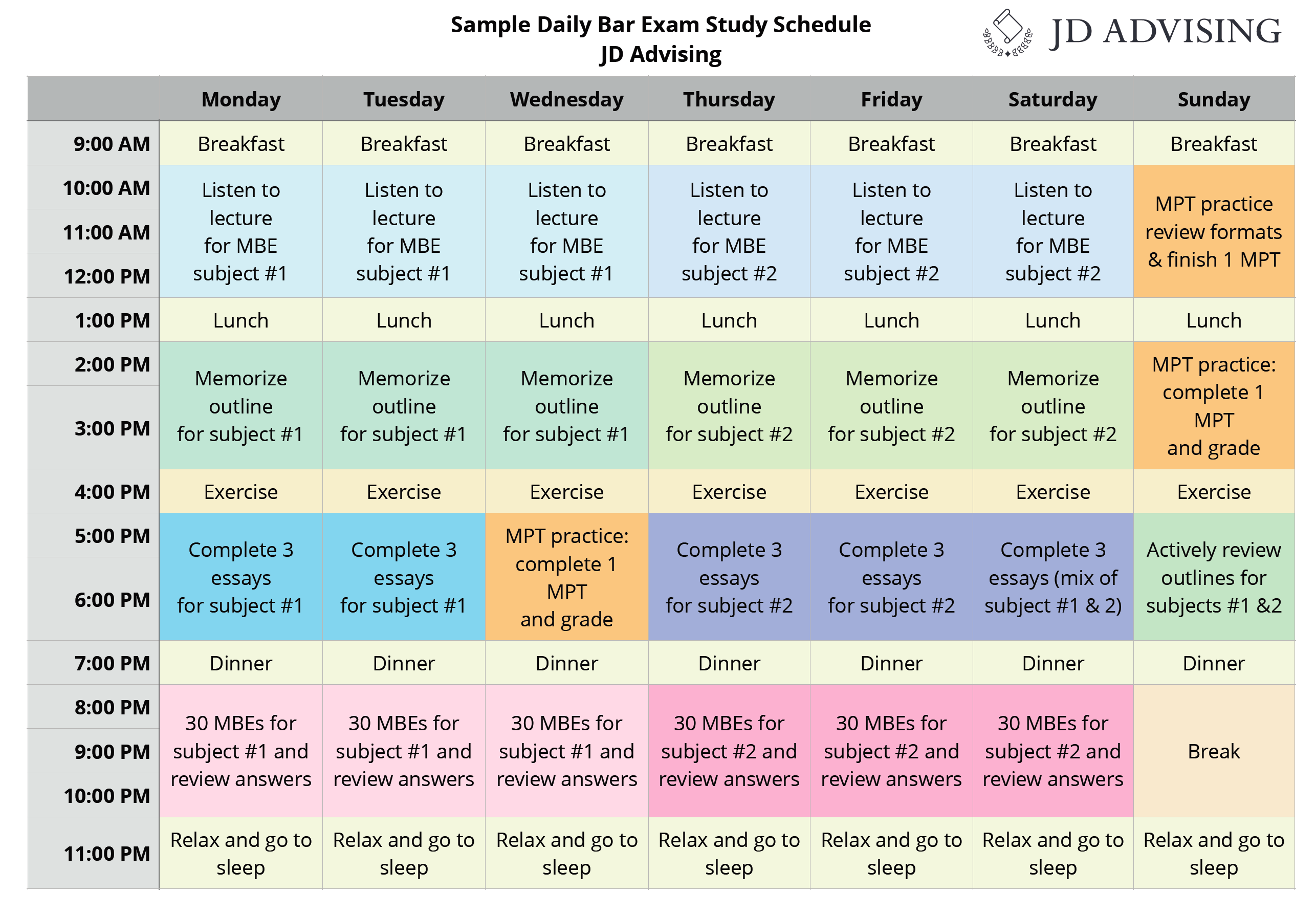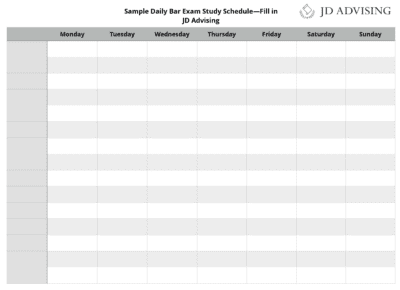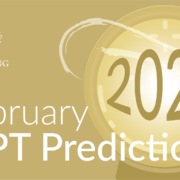How to Create a Daily Bar Exam Study Schedule
How to Create a Daily Bar Exam Study Schedule
Are you having trouble creating an effective bar exam study schedule? Below we provide a sample week-long schedule that you can use as a guideline in creating your own. Additionally, we provide some tips that will help you maximize the time you spend studying for the exam. (To make the image bigger, click on it and it will open in a new tab!)
How to Create a Daily Bar Exam Study Schedule
1. Listen to the lecture in the morning (or the evening before).
The first thing you should when reviewing a new subject is listen to the lecture. Lectures for MBE subjects are often multi-day lectures –make sure you keep on track. If you are a person who actively reviews best in the morning, it may be a good idea to listen to the lecture the night before you intend to begin memorizing your outline and doing practice questions. If you are a person who actively reviews best in the afternoon and evening, it is probably better to listen to the lecture in the morning.
2. Actively review your outline.
After you listen to the lecture, take the time to review the concepts you learned that day. If a particular concept does not make sense, take the time to look at some examples to clear up any misunderstanding. Next, begin to actively memorize the concepts you learned that day. Common memorization techniques include quizzing yourself by covering up parts of your outline and reciting the rules out loud or covering up parts of your outline and writing out the rules. Then compare whether what you said or wrote matches the information in your outline. It is also useful to create mnemonics to help you memorize lists or elements.
If you are looking for more tips on how to learn your bar exam outlines, click here.
3. Set aside time to do practice essays (and MPTs, if this is a component of your state’s exam).
The best way to see whether you truly understand the issues tested on the bar exam is by doing timed essays from past exams. Try to do five or six essays per subject; each essay should test differently highly tested issues. If you find that you are struggling with how certain issues are tested, take a look at other essays that test the same concepts. Always read through the model answers or bar examiners’ analyses (if your state or NCBE provides them) and self-grade your answers in a different color noting any issues you missed, rules that you misstated, facts you could have included in your analysis, and whether you reached the appropriate conclusion. Do not skip this step—it is invaluable in helping you actively review the law. Here is advice on how to self-grade your MPTs.
4. Consistently practice MBEs.
In some states the MBE portion of the exam is worth as much as 50% of the overall score. Do MBE questions while you are learning a new subject. Do not put off doing MBEs until the end of January or the beginning of February (or June or July if you are taking the July bar)! Additionally, as you learn new MBE subjects, set aside time each week to do MBEs for the subject(s) you learned the previous week. This is where mixed sets are particularly useful. Again, make sure to review the explanations and write out the law for each question that you get wrong. Keep these rule statements in one place and quiz yourselves on the rules you missed each week.
5. Set aside time for practice exams in your bar exam study schedule.
To build the stamina to take the exam, it is important to include days where you do set of 33 MBEs, then 50 MBEs, slowly working your way up to 100 MBEs. This applies to the essays as well. Begin with one or timed essays and gradually increase the number that you complete in a session. This will help you figure out whether you have any timing issues—the earlier you discover timing issues the easier it is to work through them.
The same applies to essays and MPT’s. Start doing one or two essays timed, then move your way up until you are completing, say, the entire morning portion of your exam.
6. Include time to exercise and relax.
Work relaxation time into your bar exam study schedule. You do not want to burn out while studying for the bar exam. To this end, it is a good idea to schedule time to exercise, whether it is running, walking, swimming, yoga, etc. Also, set aside time to do things that relax you, such as painting, drawing, listening to music, etc. You need to give your brain a chance to recover. It is equally important to eat nutritious meals and get a good night’s sleep each night.
Christine, one of our bar exam tutors, wrote this post. Christine has passed three bar exams, including California, New York, and New Jersey. She also scored in the 95th percentile on the MBE and specializes in helping students raise their MPT scores.
Looking to Pass the Bar Exam?
Free Resources:
- 🌟Bar Exam Free Resource Center: Access our most popular free guides, webinars, and resources to set you on the path to success.
- Free Bar Exam Guides: Expert advice on the MBE, the MEE, passing strategies, and overcoming failure.
- Free Webinars: Get insight from top bar exam experts to ace your preparation.
Paid Resources:
- 🏆One-Sheets: Our most popular product! Master the Bar Exam with these five-star rated essentials.
- Bar Exam Outlines: Our comprehensive and condensed bar exam outlines present key information in an organized, easy-to-digest layout.
- Exclusive Mastery Classes: Dive deep into highly tested areas of the MBE, MEE, MPT, and CA bar exams in these live, one-time events.
- Specialized Private Tutoring: With years of experience under our belt, our experts provide personalized guidance to ensure you excel.
- Bar Exam Courses: On Demand and Premium options tailored to your needs.
- Bar Exam Crash Course + Mini Outlines: A great review of the topics you need to know!
🔥 NEW! Check out our Repeat Taker Bar Exam Course and our new premier Guarantee Pass Program!






